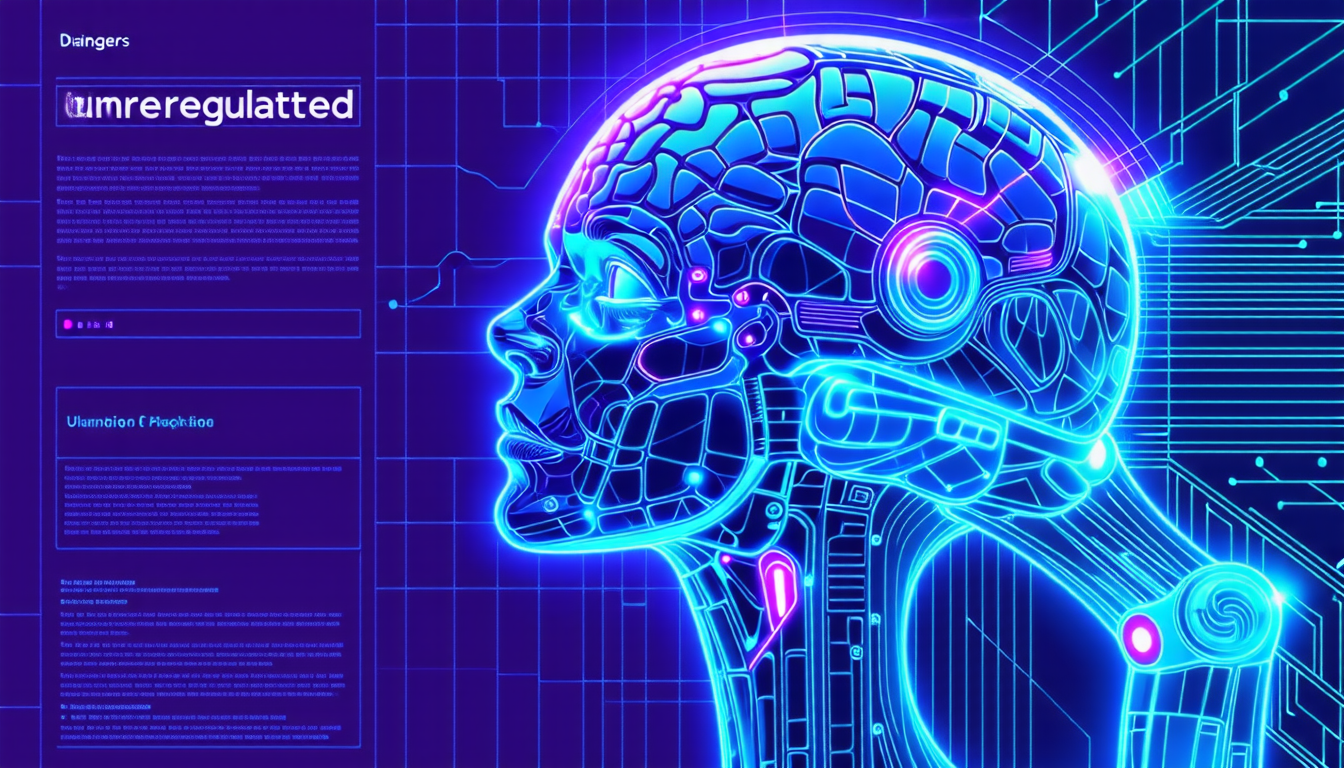The impressive advances in artificial intelligence (AI) pave the way for a promising future. However, without adequate regulation, this technology could become a major threat, plunging our society into a new dark age filled with unforeseen and uncontrollable dangers.
The expropriation of works protected by copyright to train generative AIs like OpenAI’s ChatGPT and Google’s Gemini raises significant concerns. This uncompensated expropriation could discourage creators, potentially leading to a decrease in the incentive for intellectual and artistic production.
AIs have the capacity to generate a significant amount of false information and deepfakes, jeopardizing the credibility of information and political stability. This problem recalls the challenges posed by social networks, largely unregulated for decades, which contributed to the spread of misinformation and negatively impacted the mental health of young people.
A balanced regulation of AI usage is necessary to prevent abuses while preserving incentives for creation. However, hasty or poorly designed measures could inhibit the positive potential of technology. It is therefore crucial to find the right balance to harness the benefits of AI while minimizing its risks.
The specter of a new dark age: unregulated advanced artificial intelligence
The impressive breakthroughs in artificial intelligence (AI) promise us a bright future. However, without adequate regulation, this technology could become a major threat, plunging our society into a new dark age filled with unforeseen and uncontrollable dangers.
The expropriation of works protected by copyright
With the popularity of models like OpenAI’s ChatGPT and Google’s Gemini, the use of copyrighted works to train these generative AIs is a major concern. Many authors, visual artists, and programmers have already filed lawsuits against these companies, arguing that their works are being used without permission. This uncompensated expropriation may discourage creators, potentially leading to an erosion of the incentive to produce intellectual and artistic works.
Propagation of false information and creation of deepfakes
AIs can generate a huge volume of content, including false information and deepfakes, which are videos or images created by AI to deceive viewers. This ability to produce misleading information and convincing imitations of real people poses problems for the credibility of information and political stability.
The precedent of social networks
Social networks, largely unregulated for decades, have created significant problems, including the spread of misinformation and the negative impact on the mental health of young people. Experts warn that AI could follow a similar trajectory if effective regulatory measures are not immediately put in place.
A necessary but balanced regulation
Specific laws and regulations are necessary to control the use of AI in order to preserve incentives for creation and prevent abuses. However, overly hasty or poorly designed regulation could also inhibit the positive potential of technology. A balanced approach is crucial to harness the benefits of AI while minimizing its risks.
| ⚠️ Expropriation of protected works | Unauthorized use of creations to train AI |
| 📰 Propagation of false information | Dissemination of misinformation and deepfakes |
| 🎨 Discouragement of creators | Erosion of incentives to produce works |
| 📉 Decline of innovation incentives | Negative impact on the creation of new knowledge |
| ⚖️ Missing regulations | Urgent need for specific laws for AI |
| 🤖 Unfair competition | AI unjustly surpassing humans in various fields |
| 🔊 Voice imitation | AI simulating human voices for scams |
| 📱 Lessons from social networks | Avoiding the same regulatory mistakes |
| 🔍 Inadequate oversight | Importance of not regulating too quickly |
| 📄 New federal laws | Need for specific legislation for AI |
The Risks of Non-Regulation: Check List
- ⚠️ Expropriation of protected works
- 📰 Propagation of false information
- 🎨 Discouragement of creators
- ⚖️ Missing regulations
- 🔊 Voice imitation
- 📱 Lessons from social networks
- 📉 Decline of innovation incentives
FAQ
Q: Why does unregulated AI present dangers?
A: Without regulation, AI can exploit protected works without compensation, propagate misinformation, and create deepfakes.
Q: What are the main risks of AI without a legal framework?
A: The main risks include copyright infringement, misinformation, and negative impacts on innovation and artistic creation.
Q: How can regulation help?
A: Appropriate regulation can protect creators, ensure fair competition, and minimize technological abuses.
Q: Are there past examples of unregulated technologies causing problems?
A: Yes, social networks are an example, leading to mental health issues and the massive spread of misinformation.
Q: What measures can be taken to regulate AI?
A: Specific laws protecting copyright and preventing abuses of technologies like deepfakes can be implemented.






